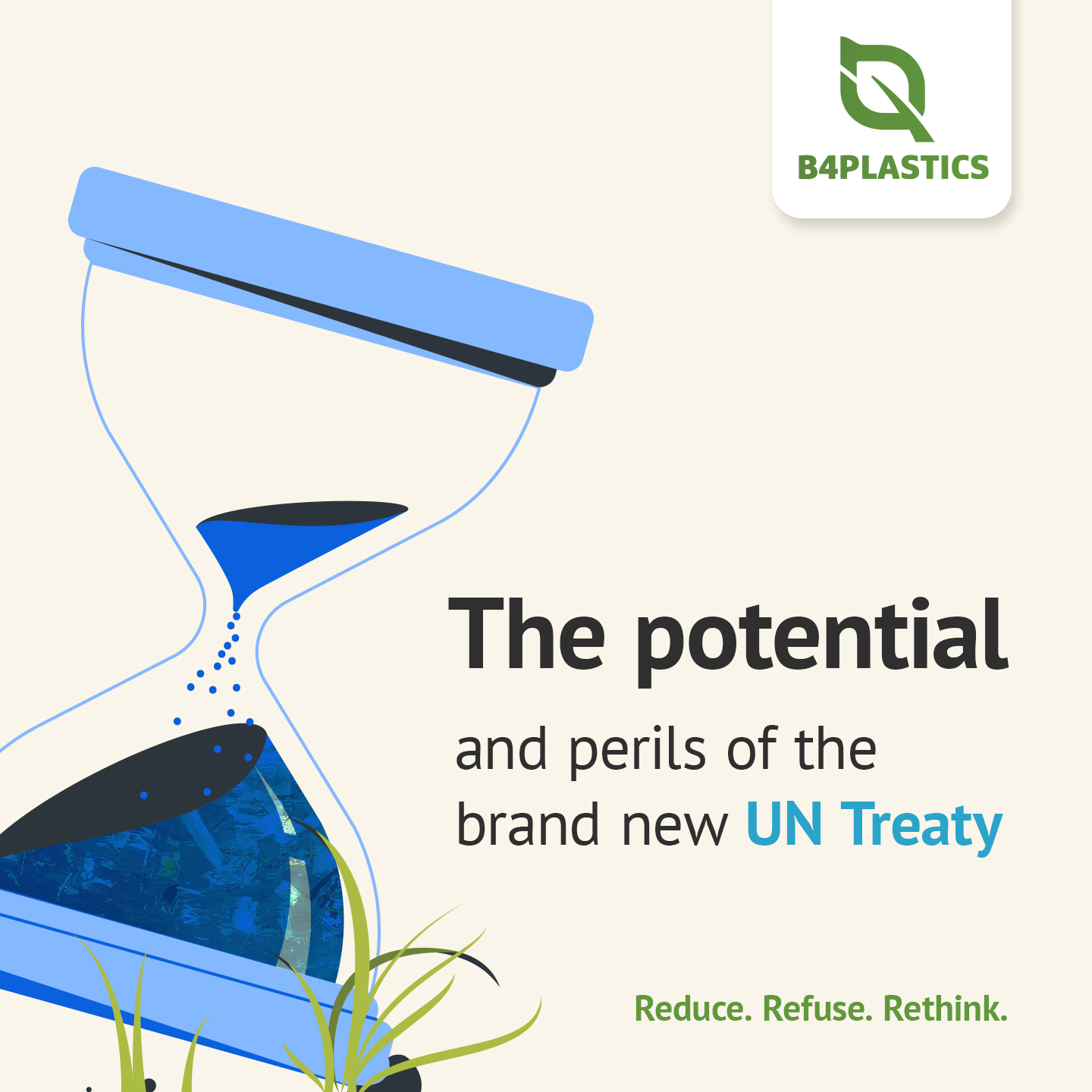Informative
UN Plastics Treaty: Potential and peril
March 3, 2022
The plastics pollution resolution addressing plastics' lifecycle from source to sea.
Plastic pollution is dangling like the Sword of Damocles over planet earth. Recent research has shown that microplastic particles are even found in the most remote areas of the planet, such as the Himalaya Mountains and the Arctic regions. Mismanaged and littered plastic waste can be life threatening to animals on land and in the seas, and the effects of the rapid accumulation of non-degradable micro- and nanoplastics on the health of the planet and humans is still not foreseeable. This pressing issue had been recognized by governments and policy-makers up to the level of the United Nations. Therefore, about 200 members of the UN agreed to sign the proposed UN Plastics Treaty.
On 2nd of March 2021, governments and high-level officials from 175 nations endorsed the UN Plastics Treaty as part of the United Nations Environmental Assembly (UNEA 5.2) taking place in Nairobi these days. Inger Andersen, the Executive Director of the UN Environment Programme, said the agreement is “the most important international multilateral environmental deal since the Paris climate accord”. The Plastics Treaty is supposed to lead to a legally binding framework affecting the entire life cycle of plastics, from production to application and waste. This being said, the Treaty could have immense effects on the bioplastics industry as well.

It is an important and positive sign that the urgency of tackling plastic pollution is discussed on such a high and international level as among the UN members. It shows that awareness on plastics has increased to a level that regulatory measures are being set to change the trend of exponentially rising plastic pollution in the environment. Although this is a great step forward, the process to develop the framework, to have all members agreeing, and finally to translate the Treaty into national law is slow. In fact, the development of the Treaty has been a long journey, from first calls for action in 2014 to its first draft now in 2022 and the final ratification expected earliest in 2024. And we cannot and should not just wait till then to take action. Solutions and measures to the plastic pollution have to be found and set today if we want to prevent more harm to nature and humankind.
Next to that, it is crucial to point out that plastic pollution and climate change are not intrinsically linked to each other. Plastics help to save resources in a variety of applications, e.g. by preventing food loss, insulating homes, or enabling light-weight designs in the transportation sector. Therefore, banning plastics can lead to unintended effects, doing more harm than good to the environment. By limiting the use of plastics as intended by the Treaty, we face burden-shifting that has the potential to lead to even more severe climate threats. Hence, it should be considered, that in most cases plastics themselves are not the issue but rather their mismanagement at the end-of-life of the plastic products.
At B4Plastics, we develop smart and custom-made solutions to maximize the benefits of bioplastics while minimizing their potential harm to the environment. An example of one of our developments offers a solution to the problem of marine waste in oceans, of which 85% is plastics. B4Plastics develops fishing gear for the Glaukos project which aims to obtain strong bioplastic fibers that serve their purpose during the use-phase, are bio-recyclable and degradable at their end-of-life, and prevent microplastic generation due to their biodegradable characteristics. For these efforts, with great potential to lower the impact of the fishing industry on the marine environment, B4Plastics was awarded the Food Planet Prize 2021. The Glaukos project exemplifies that great progress is accomplished by the power of innovation more than by demobilizing through bans.
The UN Plastics Treaty has an important symbolic character. However, let’s not wait for authorities to setup legal frameworks sometime in the future but rather act now, together. Jump on our green ride towards the New Plastics Economy by becoming a partner or simply by joining our team! Check out our services and our job openings.
